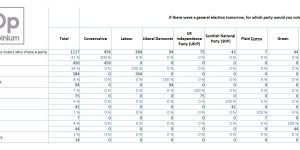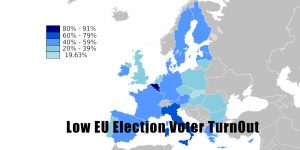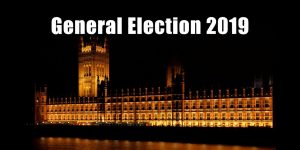The United Kingdom’s Exit from and new Partnership with the European Union White Paper
3. Strengthening the Union
It is more important than ever that we face the future together, united by what makes us strong: the bonds that unite us, and our shared interest in the UK being an open, successful trading nation.
3.1 We have ensured since the referendum that the devolved administrations are fully engaged in our preparations to leave the EU and we are working with the administrations in Scotland, Wales and Northern Ireland to deliver an outcome that works for the whole of the UK. In seeking such a deal we will look to secure the specific interests of Scotland, Wales and Northern Ireland, as well as those of all parts of England. A good deal will be one that works for all parts of the UK.
3.2 The Prime Minister has already chaired two plenary meetings of the Joint Ministerial Committee, which brings together the leaders of the devolved administrations of Scotland, Wales and Northern Ireland. The first meeting agreed to set up a Joint Ministerial Committee on EU Negotiations (JMC(EN)), so ministers from each of the devolved administrations can contribute to the process of planning for our departure from the EU. At the January plenary session of the Joint Ministerial Committee, ministers agreed to intensify their work ahead of the triggering of Article 50 and to continue at the same pace thereafter.
The Joint Ministerial Committee on EU Negotiations (JMC(EN))
The JMC(EN) is chaired by the Secretary of State for Exiting the EU and its members include ministers from each of the UK devolved administrations.
JMC(EN) has met on a monthly basis since its inception, and will continue to meet regularly to understand and consider each administration’s priorities; to seek to agree a UK approach to, and objectives for, negotiations, and to consider proposals put forward by the devolved administrations.
At the first meeting, held in November, ministers set out their priorities for discussion at JMC(EN) and agreed to develop further the proposed work programme to ensure its connection to and involvement with the process of negotiations. Ministers agreed to meet monthly to share evidence and to take forward joint analysis, which would inform that work programme.
At the second meeting, held in December, ministers discussed their priorities relating to law enforcement, security and criminal justice, civil judicial cooperation, immigration and trade. There was a follow up discussion from the last meeting of JMC(EN) on market access. Ministers agreed that officials should take forward joint analysis across the range of issues being considered by JMC(EN) and captured in the work programme. Ministers agreed to continue to engage bilaterally ahead of the next meeting in January.
At the third meeting in January, the Scottish Government presented its paper on Scotland’s Place in Europe and the Committee agreed to undertake bilateral official-level discussions on the Scottish Government proposals.
UK government departments also continue their significant bilateral engagement on the key issues relating to the UK’s withdrawal from the EU and on ongoing business.
3.3 The current devolution settlements were created in the context of the UK’s membership
of the EU. All three settlements set out that devolved legislatures only have legislative
competence – the ability to make law – in devolved policy areas as long as that law is
compatible with EU law.
3.4 This has meant that, even in areas where the devolved legislatures and administrations currently have some competence, such as agriculture, environment and some transport issues, most rules are set through common EU legal and regulatory frameworks, devised and agreed in Brussels. When the UK leaves the EU, these rules will be set here in the UK by democratically elected representatives.
3.5 As the powers to make these rules are repatriated to the UK from the EU, we have an opportunity to determine the level best placed to make new laws and policies on these issues, ensuring power sits closer to the people of the UK than ever before. We have already committed that no decisions currently taken by the devolved administrations will be removed from them and we will use the opportunity of bringing decision making back to the UK to ensure that more decisions are devolved.
The recent history of devolution
The UK’s constitutional arrangements have evolved over time and been adapted to reflect the unique circumstances of the world’s most successful and enduring multi-nation state.
These arrangements provide all of the UK with the space to pursue different domestic policies should they wish to, whilst protecting and preserving the benefits of being part of the wider UK.
The current arrangements for governing the UK have been in place for almost 20 years.
In September 1997, referendums were held in Scotland and Wales and a majority of voters chose to establish a Scottish Parliament and a National Assembly for Wales.
In Northern Ireland, devolution was a key part of the Belfast Agreement, which was supported by voters in a referendum in May 1998. The UK Parliament passed legislation in 1998 to establish the three devolved legislatures and administrations and set out their powers. Throughout the last two decades, the settlements have continued to evolve; for example, new tax raising powers were devolved to the Scottish Parliament under the Scotland Act 2016 and the model of Welsh devolution was altered by the Wales Act 2017.
The UK Government acts in the interests of the whole UK and is responsible for the UK’s international relations, including negotiations with the EU. It transacts those responsibilities in close consultation with the devolved administrations, underpinned by the principles set out in the Memorandum of Understanding agreed by all the administrations.
3.6 We must also recognise the importance of trade within the UK to all parts of the Union. For example, Scotland’s exports to the rest of the UK are estimated to be four times greater than those to the EU27 (in 2015, £49.8 billion compared with £12.3 billion).[6] So our guiding principle will be to ensure that – as we leave the EU – no new barriers to living and doing business within our own Union are created. We will maintain the necessary common standards and frameworks for our own domestic market, empowering the UK as an open, trading nation to strike the best trade deals around the world and protecting our common resources.
3.7 On the basis of these principles, we will work with the devolved administrations on an approach to returning powers from the EU that works for the whole of the UK and reflects the interests of Scotland, Wales and Northern Ireland.
3.8 We will also continue to champion devolution to local government and are committed to devolving greater powers to local government where there is economic rationale to do so.
Devolved administrations’ proposals
In addition to the broad programme of engagement through JMC(EN), the UK Government has committed to examine any proposals brought forward by the devolved administrations. To date papers have been published by the Scottish and Welsh Governments.
In December, the Scottish Government published Scotland’s Place in Europe,[7] which was presented to JMC(EN) in January.
The paper set out three priorities:
1. influencing the overall UK position so that the UK remains in the European Single Market, through the European Economic Area (EEA) Agreement and also in the EU Customs Union;
2. exploring differentiated options for how Scotland could remain a member of the European Single Market and retain aspects of EU membership, even if the rest of the UK leaves; and
3. safeguarding and significantly expanding the powers of the Scottish Parliament.
The UK and Scottish Governments are taking forward further discussions on the proposals detailed in the paper.
In January, the Welsh Government published Securing Wales’ Future,8 which set out a joint position with Plaid Cymru. The paper, which will be discussed at a future JMC(EN) meeting, set out the Welsh Government’s views on six areas:
1. the importance of continued participation in the Single Market;
2. a balanced approach to immigration linking migration to jobs and good, properly enforced employment practices;
3. on finance and investment, Wales should not lose funding as a result of the UK leaving the EU;
4. a fundamentally different constitutional relationship between the devolved governments and the UK Government;
5. maintaining social and environmental protections; and
6. proper consideration of transitional arrangements.
The Northern Ireland Executive has not published a White Paper on EU exit. However, the former First and deputy First Ministers wrote to the Prime Minister setting out the key priorities for Northern Ireland last August. Ministers from the Northern Ireland Executive have participated in JMC(EN) discussions and presented evidence on the impact of EU exit in Northern Ireland and the priorities for Northern Ireland from the new relationship with the EU.
Bilateral discussions will now be taken forward between each of the devolved administrations and the UK Government to fully understand their priorities, which will inform the continuing discussions.
There are many areas where the devolved administrations and the UK Government agree, including on the importance of providing certainty for businesses across the UK, maintaining strong trading links with the EU, protecting the status of EU nationals in the UK and UK nationals in the EU and protecting workers’ rights.
3.9 As the UK leaves the EU, the unique relationships that the Crown Dependencies of the Isle of Man and the Channel Islands and the Overseas Territories have with the EU will also change. Gibraltar will have particular interests, given that the EU Treaties apply to a large extent in Gibraltar, with some exceptions (for example, Gibraltar is not part of the Customs Union).[8]
3.10 We have ensured that their priorities are understood through a range of engagement including new fora dedicated to discussing the impact of EU exit: the Joint Ministerial Council on EU Negotiations, with representatives of the governments of the Overseas Territories, a new Joint Ministerial Council (Gibraltar EU Negotiations) with the Government of Gibraltar, and formal quarterly meetings with the Chief Ministers of the Crown Dependencies. We will continue to involve them fully in our work, respect their interests and engage with them as we enter negotiations, and strengthen the bonds between us as we forge a new relationship with the EU and look outward into the world.
[6] ‘Export Statistics Scotland – 2015’, Scottish Government, January 2017.
[7] ‘Scotland’s Place in Europe’, Scottish Government, December 2016.
[8] ‘Securing Wales’ Future’, Welsh Government, January 2017.
Previous : Taking Control of Our Own Laws
Next : Protecting Our Strong and Historic Ties with Ireland and Maintaining the Common Travel Area
The United Kingdom’s Exit from and new Partnership with the European Union White Paper











